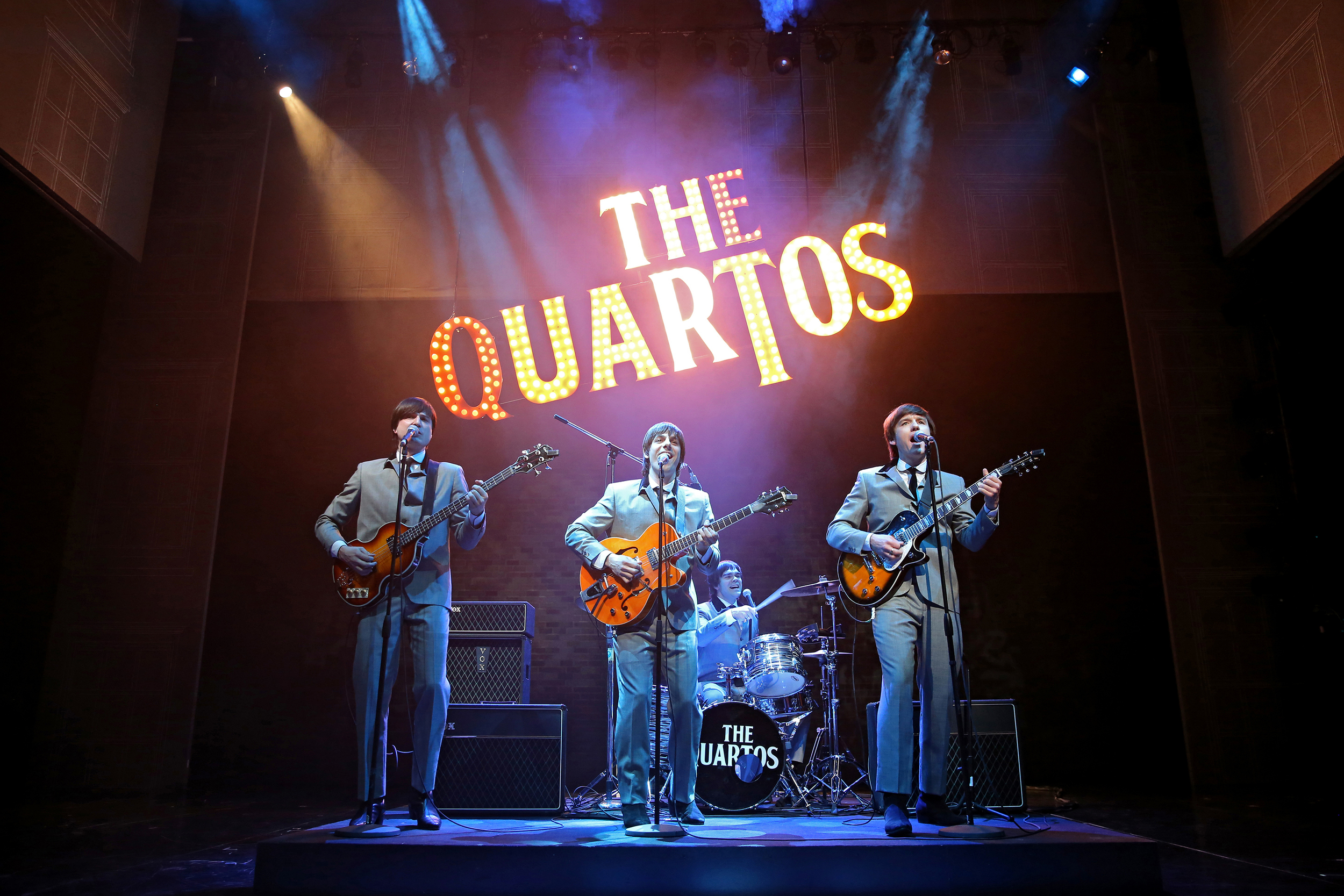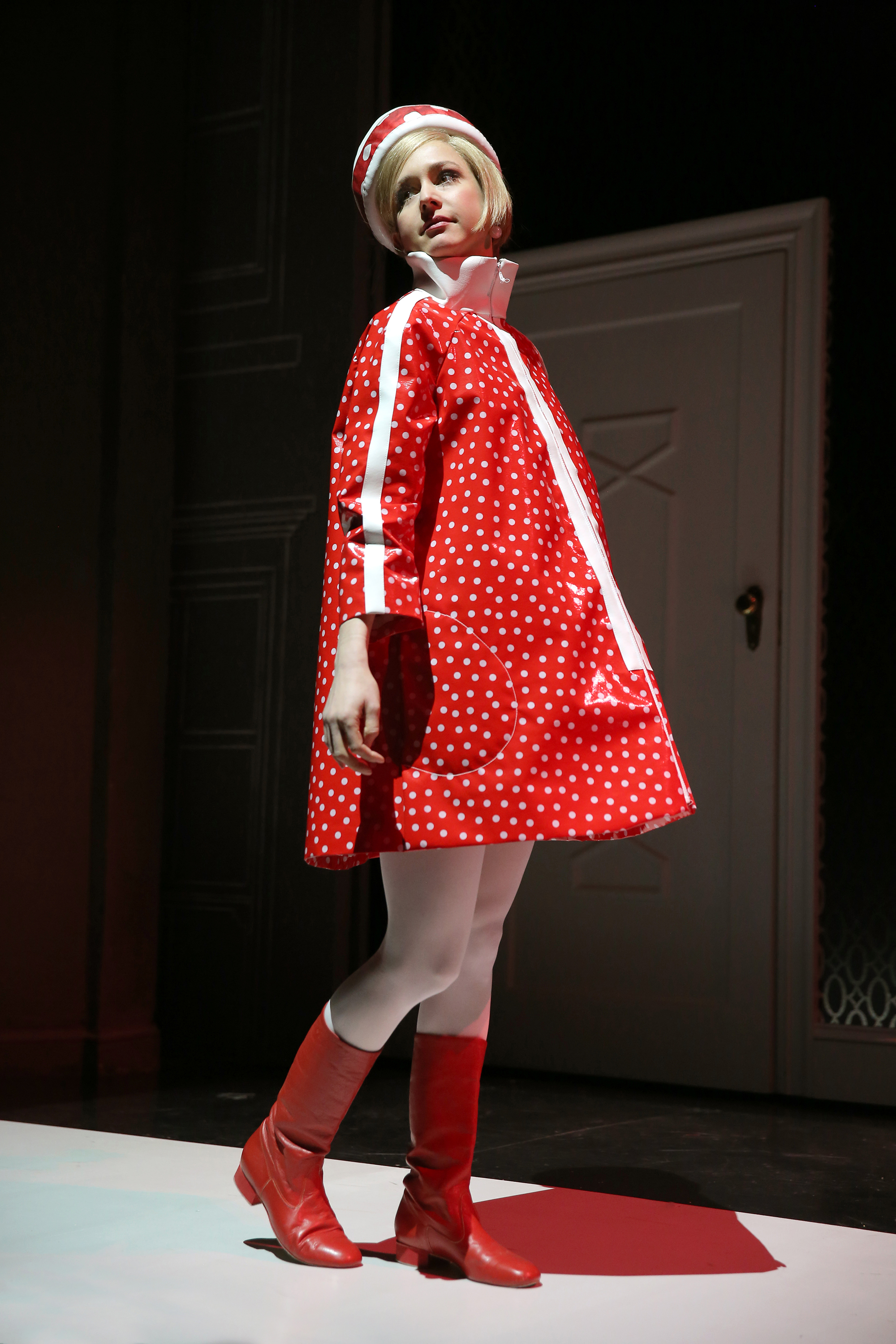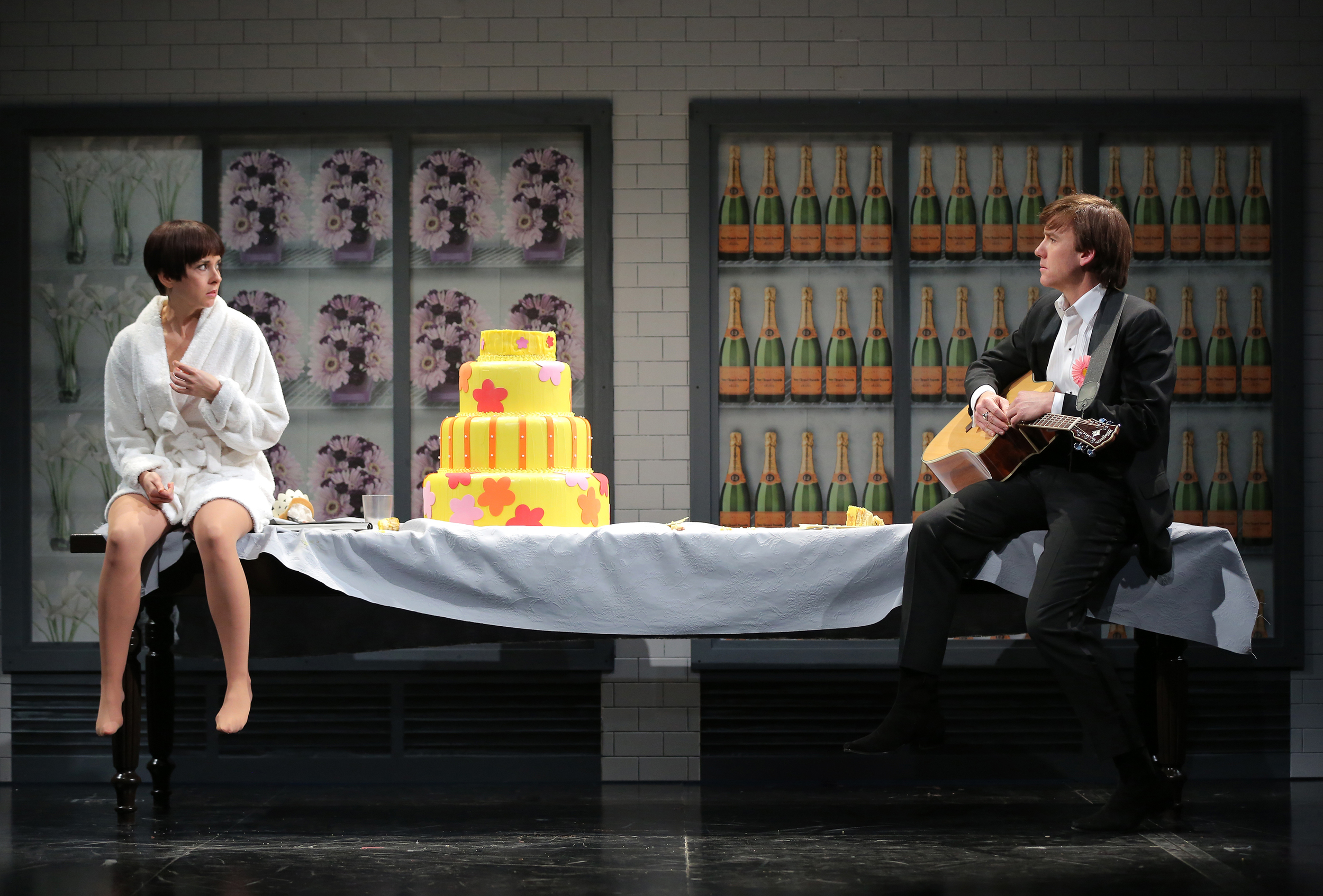Review of Elevada at Yale Repertory Theatre
“Romantic comedy” doesn’t usually spring to mind in connection with Yale Repertory Theatre. In addition to revivals of classic works, Yale Rep has typically committed itself to world premieres, experimental scripts, and works that defy genre typing. Sheila Callaghan’s Elevada, directed by Jackson Gay (who directed These! Paper! Bullets!, last year’s rollicking reinvention of Shakepeare) in fact fills the latter three categories. A new comedy about four lonely people who need to find love—the usual rom-com stakes—Elevada is, above all, hard to pin down.
Hence the title, which derives from the early history of the tango. As the program tells us, the tango originated on the Argentinean waterfront, and, as the dance became popular, high society folks came to “dingy dance parlors” to learn it, devising a high step (the elevada) to keep from soiling their hems with the grime underfoot. Callaghan is interested in how we, in the technologically insulated twenty-first century, perform our own versions of the elevada—how we avoid messy genuine feelings that can lead to the greater morass of disappointment and grief. And she proposes, and exposes, several familiar methods.
For instance, the play opens with a blind date between the agonizingly shy Khalil (the marvelous Alfredo Narciso) and Ramona, who appears to be an extreme extrovert (beautifully played by Laurel Casillo). Khalil has made millions in the dotcom world of social media at the expense of learning how to be social himself. Ramona is bubbly, quirky, talkative, frank about herself and, it seems, genuinely interested in Khalil. The fact that, on a first date, she casually brings up the subject of death should give us a jolt and clue us in: Ramona is not quite as open as she seems. Although we seem to be in a romantic comedy, our attractive and attracted opposites will go to some dark and unusual places before the play’s end.
Because a good deal of Elevada’s pleasure comes from surprise, I’ll resist discussing the sources of the darkness, and move on to the play’s two other characters: Khalil’s roommate, Owen, one of the most hilariously philosophical recovering addicts one is likely to meet, and Ramona’s sister, June, who is a crackerjack realtor and, beneath her armored exterior, a vulnerable mess. Owen, played by Greg Keller, gets some of the playwright’s weirdest and wittiest language, and he makes the absurd locutions sound perfectly natural.
Keira Naughton has by far the most difficult role: June is everyone’s straight woman, the overbearing older sister, the woman closed off from her own longings. Many actresses shy away from roles that run the risk of being disliked. Yet Naughton plays every note of this complex woman, so that when June’s longings break through, and—ultimately—when joy replaces her desperate need to be needed, we can fully rejoice in her transformation.
How Khalil, Ramona, Owen, and June metaphorically dance with one another in a series of mainly two-person scenes makes up the plot of Elevada. And though, scene-by-scene, this plot is satisfying, the play doesn’t always quite hold together, dramaturgically. In a minor example, early on Khalil and Ramona take an actual dance lesson together, but we see them learning to pole-dance, not the tango—why? In fact, the tango itself arrives too late in the action to make the metaphor of the play’s title resonate fully. More importantly, a penultimate revelation lowers, rather than heightens, the stakes of the entire story. Perhaps were the play closer to ninety minutes than its running time of two hours, the main revelation would feel more earned.
However, these missteps don’t come close to ruining the evening’s pleasures. The greatest of these pleasures lie in Callaghan’s brilliant yet believable language and in Gay’s sure direction and pacing. Many of the scenes are wonderfully silly, but even these have their own wisdom. And the sheer fun of such scenes deepens the darker scenes.
Gay is helped in the production’s theatrical power by a tremendous group of designers. Kurtis Boetcher’s sets are spare and evocative; Shawn Boyle’s projections are haunting; and Steven M. Rotramel’s costumes communicate every layer of these multi-dimensional characters. In addition, Lighting Designer Tyler Micoleau and Sound Designer Kate Marvin make the set changes a crucial part of the evening: these are choreographed dances in themselves.
A romantic comedy that leaves one with much to think about, long after the curtain closes, is rare indeed. Elevada, with its uniquely witty and poetic language, its suspense, its complicated sadness, its warmth, and—finally!—its dancing, just possibly creates a new genre for our seemingly unromantic, and often superficial, era.
Elevada By Sheila Callaghan
Directed by Jackson Gay
Dancers: Frankie Alicea, Luis Antonio, Evan Gambardella, Melissa Kaufman, Rebecca Maddy; Choreography: Kyle Abraham and Kevin Williamson; Set Design: Kurtis Boetcher; Projection Design: Shawn Boyle; Sound Design: Kate Marvin; Lighting Design: Tyler Micoleau; Costume Design: Steven M. Rotramel; Casting Director: Tara Rubin Casting; Production Dramaturg: Catherine Sheehy; Stage Manager: Emily DeNardo; Photos: Carol Rosegg
Yale Repertory Theatre
New Haven, April 24-May 16, 2015









